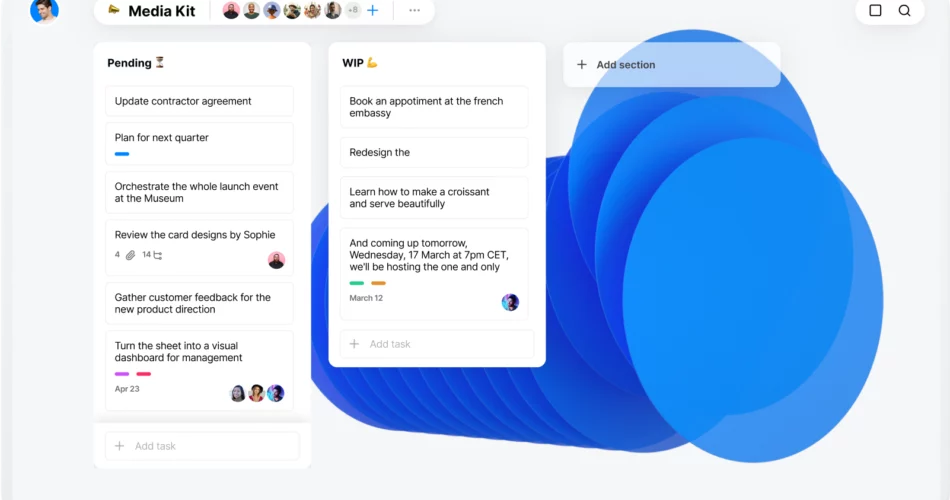Kanban is a flexible and adaptable method for managing and tracking work. Some of the benefits of using kanban include:
- Visibility: Kanban boards provide a visual representation of the work that needs to be done, which makes it easy for team members to see what tasks are in progress and what needs to be done next. This can help to improve communication and collaboration within the team.
- Flexibility: Kanban is highly adaptable and can be used for a wide range of tasks and projects. It can be customized to meet the specific needs of a team or organization.
- Collaboration: Kanban encourages collaboration and communication within teams, as it provides a shared workspace where team members can work together to complete tasks and projects.
- Continuous improvement: Kanban is designed to be an ongoing process, which means that teams can continually review and improve their workflows. This can help to increase efficiency and productivity over time.
- Simplicity: Kanban is a simple and straightforward method for managing work, which makes it easy for team members to understand and use. It can be implemented quickly and with minimal upfront investment.
It can be used to manage a wide range of tasks and projects and can be customized to meet the specific needs of a team or organization like:
- Personal tasks and goals: A kanban board can be a great tool for managing and tracking your personal to-do list, goals, and projects. You can use it to visualize your progress and stay organized.
- Team projects: Kanban boards are commonly used by teams to manage and track the progress of their projects. They can be used to assign tasks, track the status of each task, and identify any bottlenecks or roadblocks that need to be addressed.
- Event planning: A kanban board can be a helpful tool for planning and organizing events. You can use it to create a timeline, assign tasks to team members, and track the progress of each task as you work towards the event date.
- Marketing campaigns: A kanban board can be used to plan and execute marketing campaigns. You can use it to track the progress of each marketing task and identify any areas that need additional focus.
- Product development: Kanban boards can be used to manage the development of new products. You can use them to track the progress of each task, identify any issues that need to be addressed, and ensure that the product is developed on time and within budget.
- Software development: Kanban boards are often used by software development teams to manage the development process. They can be used to assign tasks, track the progress of each task, and identify any issues that need to be addressed.
- Service delivery: Service delivery teams can use kanban boards to manage and track the progress of their tasks and ensure that they are meeting their commitments to their clients.
- Content creation: A kanban board can be a helpful tool for managing the creation of content, such as blog posts, articles, or social media posts. You can use it to track the progress of each task and ensure that the content is created on schedule.
- Customer service: Customer service teams can use kanban boards to track and manage customer inquiries and requests. They can be used to assign tasks to team members, track the progress of each task, and ensure that customer issues are addressed in a timely manner.
- Process improvement: Kanban boards can be used to identify and track improvements to business processes. You can use them to identify areas where changes need to be made, assign tasks to team members, and track the progress of each task as you work to improve the process.



